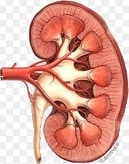
Exclusive interview: Samsung Bioepis’ Sang-Jin Pak on the rise of biosimilars
pharmafile | December 2, 2019 | Feature | Business Services, Manufacturing and Production, Medical Communications, Research and Development, Sales and Marketing | Samsung Bioepis, biosimilars, pharma
Following on from our focus on biosimilars in our feature last week, you can read Nikhil Patel’s interview with Sang-Jin Pak, Senior Vice President & Head of Commercial at Samsung Bioepis, where he discusses the increasing prevalence of biosimilar medications and where the company stands within this.
How do you think policymakers can make biosimilars more viable options in the US market to achieve greater uptake?
With the publication of the FDA Biosimilars Action Plan last year, it is clear that authorities in the US are keen to investigate the potential of biosimilars for their market. Using the action plan as a framework, policymakers can work alongside developers, insurers and experts to ensure that as many patients as possible have access to treatments. It is estimated that the US market could reduce spending on biologics by up to $150 billion by 2026 if biosimilars were widely adopted.
Samsung Bioepis has put process innovation at the center of our biosimilar business. This has led to the development of high-quality biosimilar medicines which we believe will raise standards across the board and build confidence in biosimilars across all stakeholders.
Only with all stakeholders working together can we realise the ambition of the FDA Biosimilars Action Plan. Overall, additional, high-quality treatment options will provide patients with greater access, removing potential barriers for those most in need of life-changing treatments.
Of the four biosimilars from Samsung Bioepis, which has seen the highest penetration rate and what factors came into its success?
Benepali (etanercept), which was our first biosimilar launched in Europe, is currently available in 25 countries in Europe and is the most prescribed etanercept across France, Germany, Italy, Spain, and the United Kingdom combined.
Additionally, Imraldi (adalimumab), which was launched across Europe one year ago, is currently available in 19 countries and is the leading adalimumab biosimilar in Germany and in Europe year to date 2019.
Different disease areas as well as diverse geographies and regulatory environments can lead to varied levels of uptake of biosimilars, as with any treatment, so it would not be possible for us to compare the success of our treatments.
Why do you think biosimilars have enjoyed a much greater success in the EU than in the US?
In Europe, the first biosimilar was approved in 2006; in the US, the first biosimilar was not approved by the US FDA until 2015. As such, we should exercise a certain level of patience, as Europe has had a 10-year head start, whereas biosimilars began entering the US market only recently.
Furthermore, when it comes to biosimilars, one size does not fit all. This is why we are working hard to develop a range of biosimilar options which we hope will provide access to innovative medicines for those who need them most.
Nevertheless, we see tremendous potential in the US market, and remain steadfastly committed to engaging stakeholders across the country to educate them on biosimilars.
How do you intend to manage competition from other biosimilar manufacturers, especially when your pipeline products come into play?
We welcome competition – it pushes us to be better and work harder for patients and we strive to ensure that the biosimilars developed by Samsung Bioepis are of the highest quality ensuring efficacy and safety for patients whilst maintaining value for healthcare systems.
For this, we have embedded ‘process innovation’, an innovative approach throughout the entire biosimilar development process ranging from cell line development to regulatory registration. By focusing on what we call ‘process innovation’, we have been able to provide high-quality medicines in a shorter period of time at a lower cost, without making any compromises to requisite safety or quality.
In addition, supply continuity is important when it comes to providing biosimilar medicines to patients. At Samsung Bioepis, we implement dual sourcing strategy at every crucial stage of manufacturing in order to prevent supply disruption. We also manage manufacturing and storage sites across different geographic regions, which allow us to efficiently manage supply timeline. It will be our agility and cast-iron commitment to quality that allows us to provide biosimilar medicines to patients who need them, in a timely manner.
Related Content

FDA approves IMIDEX’s AI-powered device VisiRad XR
The technological pharmaceutical company IMIDEX has been granted clearance from the US Food and Drug …

Artiva Biotherapeutics announces FDA clearance of IND for AlloNK and Rituximab combo
On 16 August 2023, the US Food and Drug Administration (FDA) officially cleared Artiva Biotherapeutics’ …

Novartis acquires Chinook Therapeutics for $3.5bn
Swiss pharmaceutical company Novartis has entered into an agreement and plan of merger with US-based …








